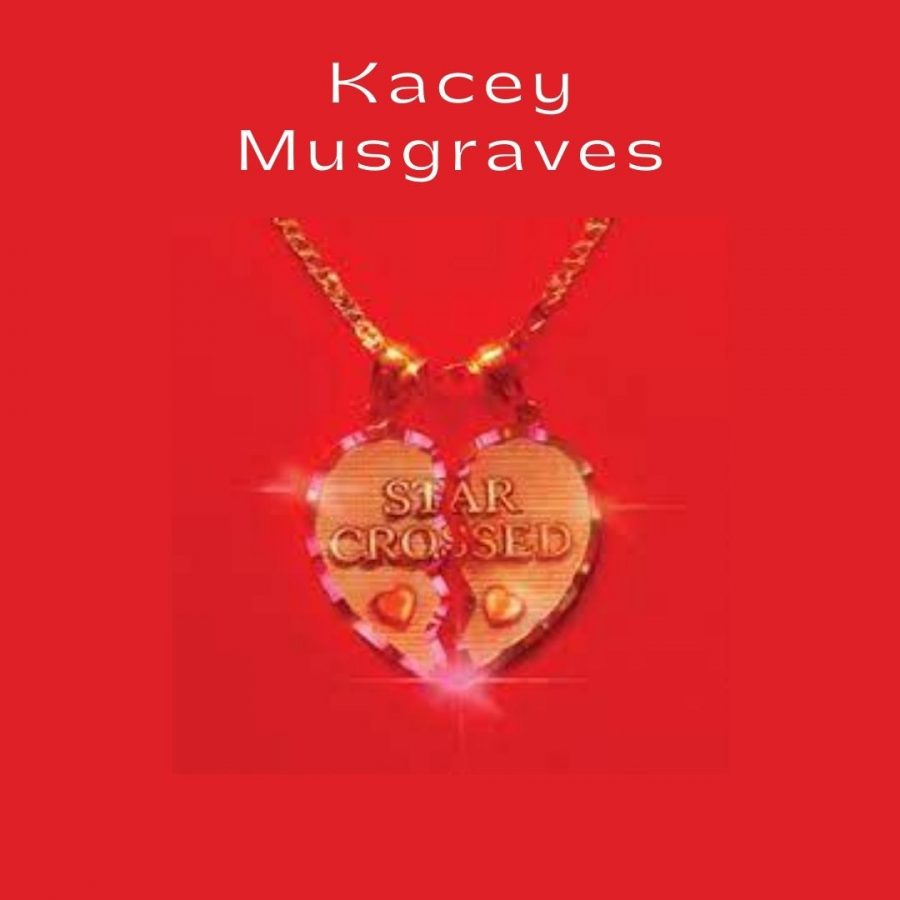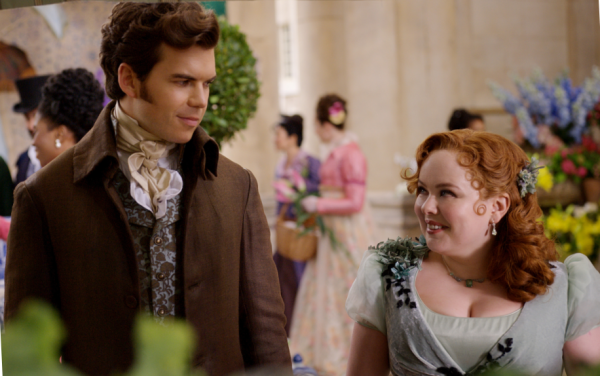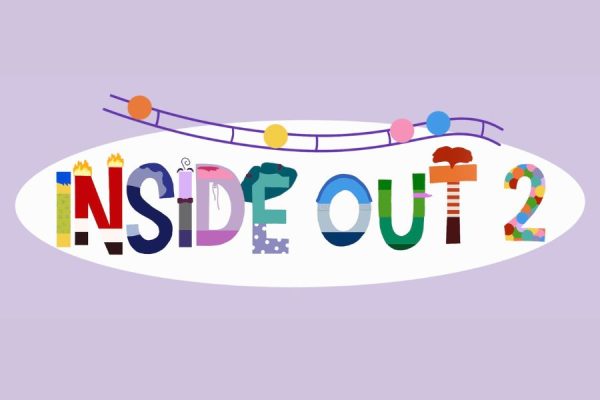Kacey Musgraves Surprises Listeners With Her Latest Album, ‘star-crossed’
Kacey Musgraves released her latest album ‘star-crossed’ revolving around the topic of her recent divorce. Photo courtesy of MCA Nashville and Interscope Records. Graphic by Hannah McDonough.
Kacey Musgraves released her first studio album in 2013. Eight years later, listeners were treated to the release of her fourth studio album, star-crossed, on September 10. Her music has strayed far from the original country roots that were so important to her first three albums. Many songs on star-crossed center around Musgraves’ recent divorce with Ruston Kelly which marked the end of a three year marriage.
At just eight years old, Musgraves started writing songs. At twelve, she picked up the guitar. Growing up in a small town in East Texas heavily influenced her music, not only in her style but also in the topic of her songs. Musgraves has released four studio albums, including Same Trailer Different Park, Pageant Material, Golden Hour, and her latest, star-crossed. She has won six Grammy Awards with nominations for more. Musgraves has had an exceptional musical career and star-crossed has, with no doubt, added to that.
star-crossed is different from Musgraves’ other albums, as its songs take on a sad, reminiscent tone that isn’t evident in a majority of Musgraves’ previous songs. Golden Hour, Musgraves’ latest album before star-crossed, was centered around falling in love, whereas her newest release is more focused on the ending of a relationship. A melancholy tone was most evident in star-crossed, representing the pain of undergoing heartbreak. The album didn’t have as much anger as one might expect would come with a divorce.
Musgraves’ previous albums had a large country influence in most songs with the sounds of banjos and mandolins, but that sound slowly turned towards pop in her third studio album Golden Hour. Now the original country sounds that defined Musgraves in the beginning aren’t prominent in star-crossed at all. Instead, other sounds emerged from the album, including a flute solo in there is a light, the fourteenth track on the album, and vocals previously unheard in Musgraves’ music at the beginning of good wife, the second track on the album. After the success of her first three studio albums, fans anticipated star-crossed with high hopes, but many were disappointed with this latest album, especially because the album contrasts with the music that originally defined Musgraves.
Musgraves started the album beautifully with the line “let me set the scene” in star-crossed, the first track on the album. The lyrics of star-crossed told a story, preparing the listener for the rest of the tracks on the album, most of which revolved around the same topic of Musgraves’ divorce. Musgraves drew some inspiration from Shakespeare’s Romeo and Juliet, hence the reference to star-crossed lovers. The theme of star-crossed love and relationships ending is woven in throughout the entire album, almost creating a story with the lyrics of each song.
Many of Musgraves’ previous songs featured positive or motivational lyrics such as “follow your arrow wherever it points” and “if you’re ever gonna find a silver lining, it’s gotta be a cloudy day.” While the trend of empowering lyrics wasn’t immediately evident in this latest album, some songs emerged from the sad album with a hopeful view on things, such as there is a light.
The last track on the album, gracias a la vida, is a song entirely in Spanish that was originally written by Chilean folk singer Violeta Parra that Musgraves covered for star-crossed. “Gracias a la vida” translates to “thank you for the life” in English. It ends the album in a sweet, grateful tone that marks a relationship that has come to an end but was beautiful while it lasted.
Musgraves sang a song with a similar effect on Golden Hour called Space Cowboy, where Musgraves sings “sunsets fade and love does too” as well as “we had our day in the sun,” giving listeners a bittersweet song to feel gracious for what once was beautiful but couldn’t last. gracias a la vida was a unique twist in representing the same bittersweet ending that Space Cowboy does. Ending star-crossed with gracias a la vida leaves listeners on a more positive note mixed with a bit of melancholy, the perfect ending to a beautiful album.

Class of 2024
I am so excited to continue working on the Horizon this year! Aside from writing and reporting, some of my favorite things to do include...






